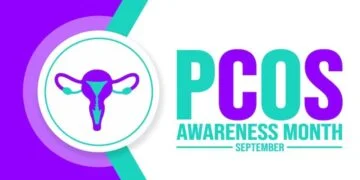Eating healthy food in reasonable quantities is one of the most important factors that can help prevent or cure a disease like the Covid-19 coronavirus or any of its variants. It is critical to understand what foods to eat and what to avoid before, during, and after an infection.
“The human immune system’s primary function is to protect the body from diseases, toxins, cancer cells, and foreign bodies.” “Food is the most important factor that affects immune system functions,” said nutritionist and head of the food industries department at Egypt’s National Research Centre Ahmed Mohamed Saeed. He went on to say that a lack of nutrients or malnutrition could lead to immune deficiency, while an excessive food intake could lead to other diseases that affect immune system functions.
Many foods, including fruits and vegetables, as well as foods high in nutrients such as amino acids, vitamins, minerals, and bioactive substances, help to strengthen the immune system. Functional foods are one of the most important food sources that help to support the immune system. According to Saeed, these contribute to disease prevention, mitigation, or treatment, as well as immune system strengthening.”Functional food is the concept of food being a source of mental and physical well-being as well as contributing to the prevention and reduction of risk factors for many diseases or the promotion of certain physiological functions such as those of the immune system,” he added. Consuming these various food sources may aid in the production of immune cells and antibodies, he claims.

“Vitamins such as A, B6, B12, folic acid, C, D, and E, as well as micro-elements such as zinc, copper, selenium, and iron, have been shown to play important roles in supporting the immune system and lowering the risk of infection.” Other nutrients, such as amino acids and omega-3 fatty acids, are also important, according to Saeed. Gut bacteria play a role in immune system regulation and can aid in the restoration of its function, particularly in elderly patients.
Among the foods that can help to strengthen the immune system, Saeed recommends yogurt as a good source of protein that can help to maintain healthy bones and skin, the first line of defense against infection. Citrus fruits, such as oranges and grapefruits, are high in Vitamin C, which has been linked to improved immunity. Women should consume 75 milligrams of vitamin C per day, while men should consume 90 milligrams. It aids the body in tissue repair and the maintenance of healthy skin and blood vessels. It is also a powerful antioxidant, which prevents cell deterioration and boosts immune function.
Green leafy vegetables, such as spinach and kale, are high in Vitamin A, which aids in immune function. Men require 900 mcg of Vitamin A per day, while women require 700 mcg. Because of their high vitamin A and C content, red peppers are especially beneficial to immune health. Green tea contains antioxidants and polyphenols, the first of which helps to prevent cell damage. Ginger has anti-inflammatory and antioxidant properties.

Garlic is also beneficial because it contains allicin and antioxidants, which aid in infection prevention and immune system support. Turmeric helps the immune system because it contains curcumin, the ingredient that gives turmeric its dark yellow color. Curcumin can influence the immune system by activating immune-related cells. When it comes to combating the coronavirus, Saeed believes that food can play a role. “Yoghurt is one of the best foods to eat while sick because it is soft and high in protein.” If a person has diabetes, ice cream may be a good option as well. “Because most people with coronavirus lose weight, ice cream contains glucose and protein, which helps patients maintain their weight,” he said.









































